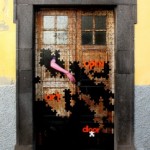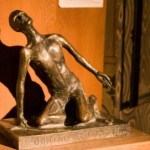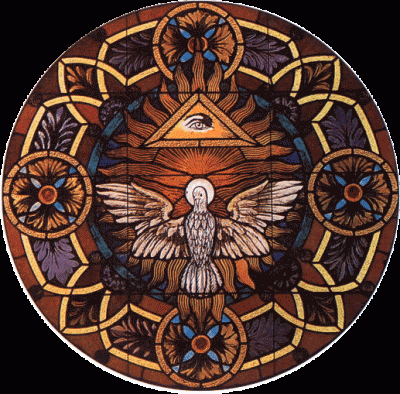 In mid-May I spent some days in Philadelphia, with four friends, each of whom has lost a spouse within the last two years. They did not all know each other, and though I knew all four, I had met one only at the funeral of his dear friend and my former mentor, who was ill for years. Then, six months later, his own wife died suddenly, and now he and the widow of my mentor have begun a loving relationship, born of great sadness and sharp sorrow, and flowering in the midst of those thorns. The other two are stepmother and stepson, the son having lost both his father and his wife, who died tragically of ALS.
In mid-May I spent some days in Philadelphia, with four friends, each of whom has lost a spouse within the last two years. They did not all know each other, and though I knew all four, I had met one only at the funeral of his dear friend and my former mentor, who was ill for years. Then, six months later, his own wife died suddenly, and now he and the widow of my mentor have begun a loving relationship, born of great sadness and sharp sorrow, and flowering in the midst of those thorns. The other two are stepmother and stepson, the son having lost both his father and his wife, who died tragically of ALS.
My role, in large part, was to open conversation and revive memories, happy memories of times treasured, times for which all these hearts ache longingly. And my role was also to bless the now, the living now, in which each of these bereaved souls is quite engaged.
The 14th chapter of John’s gospel is quite like this, for all the disciples are grieving Jesus, struggling with his death and their loss, and wondering what to do now, in the living now. They have the same sense of profound homelessness that comes to surviving spouses and children, a sense of being lost in a world that looks outwardly the same but has become a wilderness, in which they do not know where to turn, or if their journey has a destination, nor do they feel safe.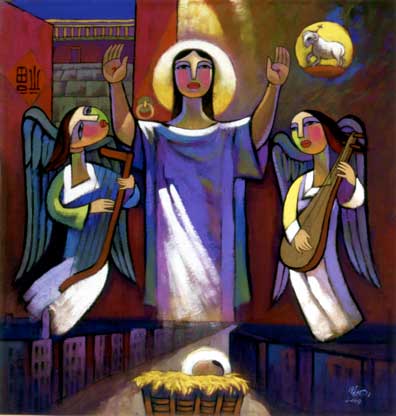
The memories my friends anticipated sharing brought a smaller measure of comfort than imagined, but did open veins of heartache, as they shared that most friends remembered the same few aspects of those they loved, which these spouses considered smaller parts of their beloved, and now it was impossible to show the world what had been forgotten. The joy of being alive, which each had and named, was salted with these freshets of their grief.
This seems to be the way it is for the disciples in John 14, who challenge the Easter presence of Jesus, saying, No, we do not know where you are going, how can we know the way to you? (Thomas) And, Look, just show us God and then we’ll be satisfied, don’t dance around us asking us to believe in things we cannot see. (Philip). And then Jesus tells them, I am in God and God is in me. If you see me, you have seen God, and if you know God, you know me. For we are one. And I am in you, who love me, and you are in me, and you are in God as I am, and you will do great things, in fact, those who love me will do even greater things than I have done.
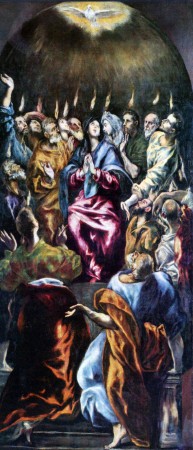 My friends, caught in the despair that nothing will ever be the same, that the relationships they have lost are irreplaceable, also long for new life, long to love and be loved again, and wonder if such a thing is even possible. Like the disciples, they are wearier now than they were when first they loved, they are worn by the work and struggle their devotion required of them, and even the two who are now in love live with hearts divided between joy and sorrow.
My friends, caught in the despair that nothing will ever be the same, that the relationships they have lost are irreplaceable, also long for new life, long to love and be loved again, and wonder if such a thing is even possible. Like the disciples, they are wearier now than they were when first they loved, they are worn by the work and struggle their devotion required of them, and even the two who are now in love live with hearts divided between joy and sorrow.
Jesus continues, saying to his friends, The father will send you another Advocate, the Spirit of truth, to be with you forever, to abide with you and in you. And this must be the source of the name Comforter for the Spirit, because Jesus gives the promise of the Spirit to the grieving. But part of that comfort are both truth and Advocacy, according to Jesus.
Part of the truth of Easter is naming the pain in which it was born, all that led to this death. And part of the work of grieving is naming what was hard and frustrating, what was difficult to love and made love all the more precious because of that, what went unnoticed by many, even the things that are beyond words, for which it is written, the Spirit intercedes for us with sighs too deep for words.
Blurring the lines between all these loves, the love of those who knew Jesus and the love of those who knew David and Happy, Omar and Chris, is what Jesus encourages us to do, by saying I am in God and God is in me and I am in you and you are in God. And this is also what Paul encourages in Acts 17, when he speaks of God, in whom we live and move and have our being. We are one in each other. And when we love, God is made visible.
Grief plunges us into a vast wilderness because we lose the home we have made in one another. And the wilderness, where God has called us ever since Abraham and Sarah’s first walk away from the well-known world, is the promised place . . .in which we live and move and have our being.
John the Baptist went into the wilderness, and so did Elijah, and so did Ezekiel, and so did Jeremiah, and so did Jesus, who, when he came out, did not go home again.
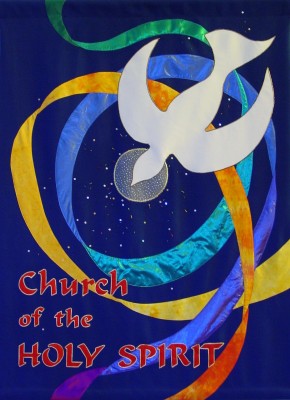 This, then is the Spirit’s gift, this presence, this belonging, this truth, when we are no longer at home in the world.
This, then is the Spirit’s gift, this presence, this belonging, this truth, when we are no longer at home in the world.
Though the much anticipated joy of remembering the past did not emerge on cue for us in Philadelphia, what did raise hopes, and smiles, and the light of joy in the eyes of those who hurt, was the promise to engage in new adventures together, and to do it soon, to find new ways to access that delight that once we knew.
We said Amen to that. Each of us. And all, together. It was truth, born of Spirit, pain, love, and hope. And we knew it.
_________________________________________________________
Illustrations:
1. Holy Spirit Mandala, used by a number of Catholic sites, image from a Novena page.
2. Messiah, by He Qi, 2001, Nanjing, China. Vanderbilt Divinity School Library, Art in the Christian Tradition.
3. Descent of the Holy Spirit, El Greco, 1601, Museo del Prado, Madrid, Spain. Image from Andrew Graham Dixon archive.
4. Church of the Holy Spirit banner, Google Images.



